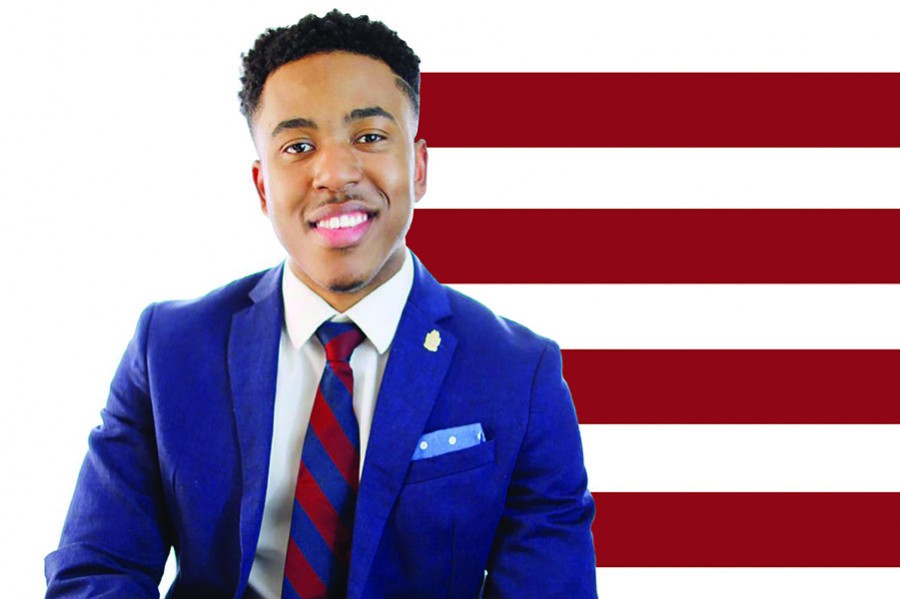Hashim Walters, mayor for the millennials
More stories from Nile Pierre
During his sophomore year at Birmingham Southern College, Hashim Walters decided to run for mayor of New Orleans. Two years later, the 22-year-old is the youngest candidate in the 2018 mayoral race and is calling on his fellow millennials to bring about change in the city he calls home.
Walters grew up in New Orleans and witnessed some of the issues facing the city firsthand. He served as Student Government Association president at Landry-Walker College and Career Preparatory High School, where he discovered a passion for politics and public service.
Meet the youngest candidate looking to become the next Mayor of New Orleans. pic.twitter.com/TuaKFifvKR
— Caresse Jackman (@CaresseJ) July 21, 2017
Though his time in high school opened the door for his current political path, being a New Orleans native also gave him something equally as meaningful.
“More than just being from New Orleans, I think another thing that shapes me is definitely my past and … being a Katrina kid,” Walters said. “Basically seeing my generation grow up from then, it definitely had an effect on us, and it definitely made us stronger.”
Walters, like many in New Orleans, saw the ways Hurricane Katrina exacerbated some of the persistent problems the city has faced for years. Worsening rates of poverty, infrastructure failure and inequality stemming from the storm have, in part, contributed to already systemic issues.
Today, 100 African-American men are shot each year in New Orleans, and many more are caught up in Louisiana’s prison system.
“I lost a lot of peers to gun violence while I was in college and people that I graduated with to the judicial system as well,” Walters said. “I knew that it had to be something big to really make an impact because we tried everything in the book but relying on young people.”
Walters sees young people as critical in identifying political solutions. Though millennials may be invested in some pressing political problems, historically, politicians have struggled to motivate them to become politically active.
“We find that in local and in state elections most often younger voters will not turn out unless there is something very, very exciting,” Rosalind Cook, Tulane professor and community leader for the League of Women Voters of New Orleans, said.
Much work still remains to fully mobilize millennial voters. According to the Pew Research Center, there were 69.2 million millennials who were eligible to vote in U.S. elections in 2016. But only about 24 million voted in the last national election according to The Center For Information and Research on Civic Learning and Engagement.
In recent years, social justice movements have sparked the interests of those in younger demographics. Topics like prison reform, violence and issues facing the LGBTQ+ community have intrigued and mobilized millennials across the nation.
“As mayor, as far as the LGBTQ community, whatever propositions that they have concerning rights I would definitely look at them,” Walters said. “If they’re positive and if they constitute to a better life, then why can’t we get them passed? Why can’t we make that happen?”
Policing is also topic at the forefront of the conversation among Tulane students and across the nation. Locally, claims surfaced in New Orleans that state police repeatedly act on racial bias against African-Americans in the community.
Walters offered a solution to bridging the divide between officers and community members.
“I wanted to implement a plan or an automatic qualification for people going to the police academy,” Walters said. “… They have community service hours while they are in training at the police academy in their respective districts … It’s no different than, for example, me. I can’t say ‘Okay I’m going to represent you, and I’ve never stepped foot in your community.’ You can’t do that.”
Walters spends much of his campaigning time sharing his platform with the millennials of New Orleans in face-to-face meetings, and he has made campaign stops at Xavier, Dillard and Tulane.
“My slogan is ‘We are One’, and the slogan speaks for itself. It says that I want to have a unified city,” Walters said. “Basically that means making sure that each community has the proper economic resources and even implementing things so we can bridge the gap between groups in the city, programs where we can help get our young people involved in politics, get our young people to work.”
Even with the rise of social activism, many college students may find it difficult to be politically active in their college’s city with their hometowns hundreds of miles away. Walters, however, sees an opportunity for college students at Tulane and other local universities to get involved in local politics.
Every college student in New Orleans should register to vote! You can do it at https://t.co/bPooIoi2XP!
— Hashim Walters (@hashim4mayor) September 12, 2017
“Even though it’s a local election, I tell everybody it’s a movement,” Walters said. “Just because you’re not from New Orleans and you go to college here, once you come to New Orleans you’re a New Orleanian.”
Your donation will support the student journalists of Tulane University. Your contribution will allow us to purchase equipment and cover our annual website hosting costs.




Leave a Comment